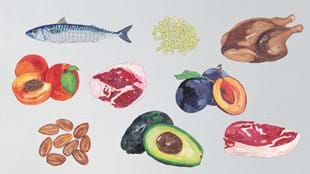Fighting obesity, cutting food waste, and even making our food production systems more efficient ... could all this be achieved by unlocking the chemical signals that regulate appetite in our brains?
For the first time a team of scientists at The University of Warwick have identified the key brain cells that control our appetite, a discovery that could revolutionize the weight loss industry. Called tanycytes, these cells detect amino acids from food and in turn signal to our brains that we feel full.
In this short interview Professor Nicholas Dale, who led the team’s research, explains his research and its implications for our understanding of appetite and hunger.
This interview comes courtesy of Radio New Zealand.
Tanycytes literally means “long cells”, and they are found right in the center of the brain. According to Dale it seems the tanycytes sense a range of amino acids in food through multiple receptors similar to those in the taste buds of the tongue.
“The similarities with the tastebuds are remarkable,” says Dale, “because different amino acid receptors in the tongue sense different types of amino acids, and we see this in the tanycytes as well. So we know they’ve got at least two amino acid sensing receptors – one of them senses essential amino acids, and the other senses non-essential amino acids.”
Foods such as pork shoulder, beef sirloin steak, chicken, mackerel, plums, apricots, avocados, lentils and almonds are high in two key amino acids – arginine and lysine – that activate the tanycytes and therefore make us feel fuller more quickly.
The researchers made their discovery by adding concentrated amounts of arginine and lysine into brain cells. They found that within 30 seconds, the tanycytes detected and responded to the amino acids, releasing information to the part of the brain that controls appetite.
Although the research is ongoing, Dale says the discovery opens up exciting possibilities for creating more effective diets. “I think one could imagine either a functional food with some sort of additive, or even just reformulating certain foods in different ways,” he says.
“I suppose the food manufacturers would have mixed opinions about this because they’d be reformulating food to make people eat less, which would be a slight hit on their bottom line. But you could imagine that people could slightly modify their diets and potentially hack into their system to alter how hungry they feel, or how full they feel.”

This content is published under licence and in partnership with Radio New Zealand, one of the world’s foremost public broadcasters. To learn more go to radionz.co.nz
Follow the freshest thinking @fitplanetmag.








